News
Coast Guard enacts pro-gay non-discrimination policy
Move prompts new calls for Pentagon to enact protections for gay service members
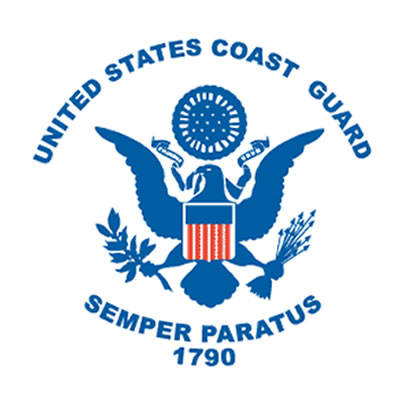
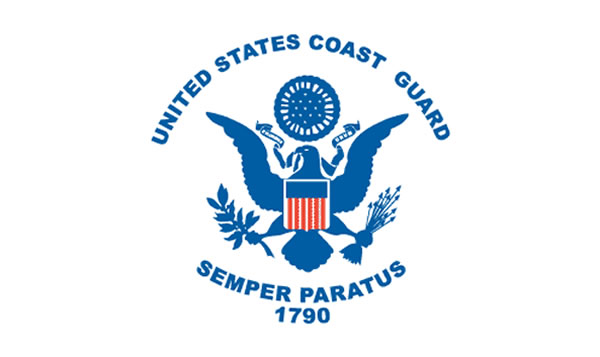
The Coast Guard has added sexual orientation to its non-discrimination policy (Image public domain).
The U.S. Coast Guard with little fanfare has added protections based on sexual orientation to its equal opportunity policy, prompting new calls for the Pentagon to do the same with other branches of the military.
The guidance, made public Thursday morning by the American Military Partners Association and dated Oct. 13, says “sexual orientation and genetic information” are now included as part of equal opportunity and anti-discrimination/anti-harassment policy statements within the Coast Guard. The guidance is signed at the bottom by Coast Guard Commandant Adm. Bob Papp.
“We must continue to uphold our core values of Honor, Respect and Devotion to Duty which underlie our excellence in mission execution, good order and discipline, and morale,” Papp writes. “Maintaining workplaces that are free from harassment and discrimination is essential to our readiness and to ensure we remain, Semper Paratus, Always Ready.”
Stephen Peters, president of the American Military Partners Association, commended Papp for taking action to protect gay members of the coast guard and said the Pentagon should make similar policy for other branches of the armed forces.
“We urge the Secretary of Defense to do the same in order to ensure all uniformed service members are protected from unjust discrimination, not just those in the Coast Guard,” Peters said. “While Department of Defense civilian employees are protected, the DoD has yet to add orientation to its non-discrimination policy for uniformed troops. This lack of inclusion has a direct impact on not only the service member’s ability to serve openly and honestly without fear of harassment, but their spouse and family as well.”
LGBT advocates have been pushing for the enactment of an explicit non-discrimination protections for gay members of the armed forces even before “Don’t Ask, Don’t Tell” repeal. Currently, service members have no recourse for anti-gay discrimination outside of their chain of command.
In response to calls for an explicit non-discrimination policy, the Pentagon has consistently said it treats all service members with respect without committing to a new policy.
Lt. Cmdr. Nathan Christensen, a Pentagon spokesperson, responded to the renewed calls by pointing to Pentagon guidance during the process of lifting “Don’t Ask, Don’t Tell” stating sexual orientation won’t “be considered along with race, color, religion, sex, and national origin as a class under the Military Equal Opportunity (MEO) program.”
Christensen added that the reason for the difference between the Coast Guard and the Pentagon is the Coast Guard isn’t structured in the same way as other military services. The Coast Guard, he said, doesn’t have an Inspector General system like the Army, Air Force, Navy and Marine Corps.
“Simply put: DoD directs discrimination cases on the basis of sexual orientation to be handled by the DoD IG system,” Christensen said. “As such, DoD does not include sexual orientation as part of our Military Equal Opportunity (MEO) program.”
Unlike other branches of the military, the Coast Guard operates under the Department of Homeland Security and is subject to different policy. Nonetheless, the Coast Guard often implements policy similar to the Pentagon’s.
For example, after former Defense Secretary Leon Panetta announced at the start of this year the Pentagon would extend partner benefits for service members in same-sex relationships, Secretary of Homeland Security Janet Napolitano followed immediately with a statement saying the Coast Guard would do the same.
One advocate for enacting an explicit non-discrimination policy for troops based on sexual orientation is Acting Air Force Secretary Eric Fanning, who espoused the idea during an interview with the Washington Blade in May.
“Speaking personally, I always think it’s important to have non-discrimination policies codified to include everyone,” Fanning said. “The military, because it has a chain of command, has a different attitude about this and a different way to try to go about protecting airmen, sailors, soldiers, Marines — but Eric Fanning? Yes. I personally like to see these things in writing and codified.”
Additionally, the Coast Guard guidance says nothing about adding gender identity to equal opportunity and anti-discrimination/anti-harassment policy statements as transgender advocates are pushing for openly transgender service in the armed forces.
Brynn Tannehill, director of advocacy for the LGBT military group SPART*A, commended the Coast Guard for adding the protections, but said the service is unable to change transgender policy because it’s “modeled after that of the DoD’s.”
“We believe that it is time to revisit these outdated policies,” Tannehill said. “The SPART*A Transgender Chapter has members who are part of the Coast Guard. The existing medical policies on transgender Coast Guard service are every bit as harmful to them as DADT was to lesbian, gay, and bisexual service members, and have nothing to do with their actual ability and desire to serve.”
World
Companies participate in ‘Pride on the Promenade’ at World Economic Forum
GLAAD co-organized initiative
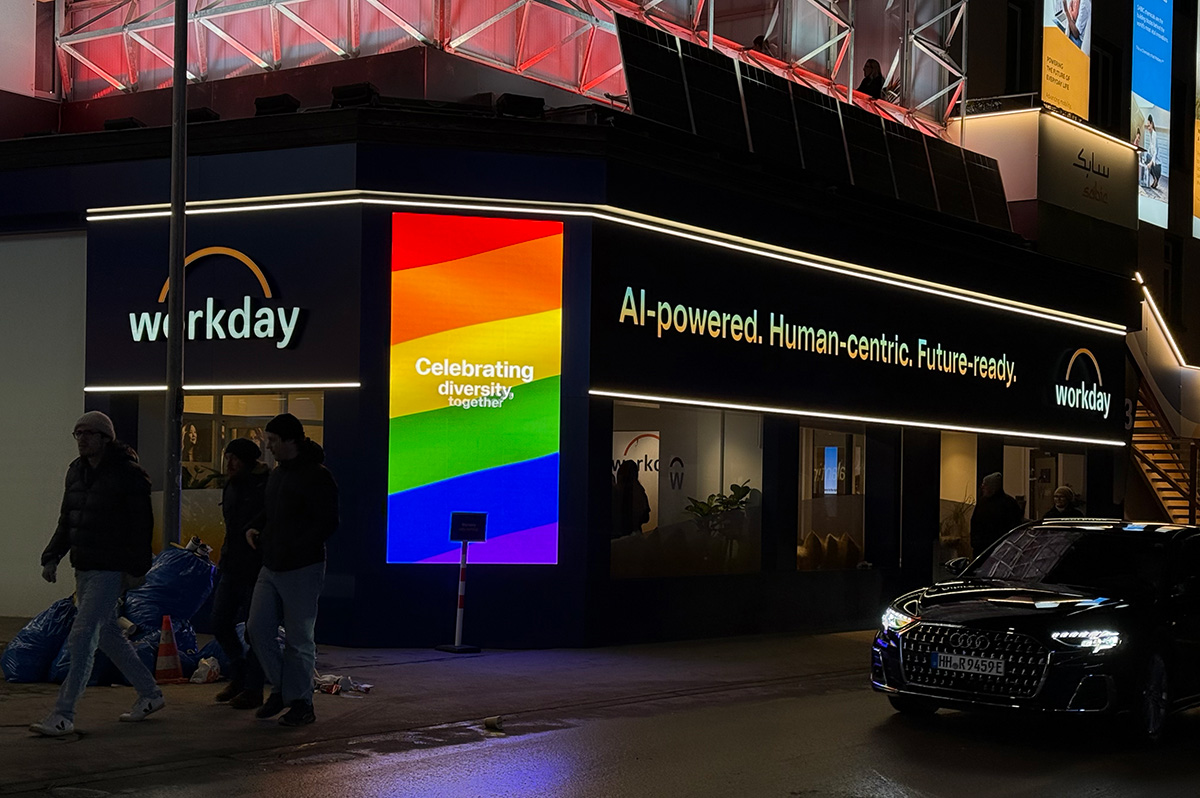
A dozen companies that are participating in the World Economic Forum on Wednesday lit up their venues on the Davos promenade in rainbow colors.
Amazon, Axios, Bloomberg, Circle, Cisco, Cloudflare, Edelman Trust House, Hub Culture, Salesforce, SAP, Snowflake, and Workday participated in the “Pride on the Promenade” that GLAAD, Open for Business, and the Partnership for Global LGBTIQ+ Equality organized. It is the fourth year the organizations have organized the initiative during the World Economic Forum.
The annual event is taking place this week in the Swiss ski resort town of Davos.
GLAAD CEO Sarah Kate Ellis on Wednesday moderated a panel in which Open for Business CEO Ken Janssens and Iris Bohnet, co-director of the Harvard Kennedy School’s Women and Public Policy Program, among others, participated. President Donald Trump earlier in the day spoke at the World Economic Forum.
“World leaders, corporate executives, and global media are discussing new ways to evolve inclusion and social issues, but leaders in those institutions and our community as a whole need to do more to support LGBTQ people globally,” said Ellis in a statement that GLAAD sent to the Washington Blade on Thursday. “At a time when decades-old alliances are being challenged, the importance of this visible show of solidarity at the largest convening of global decision makers cannot be understated. Inclusion remains a necessary business practice and companies that demonstrate shared values of family and freedom know this helps grow the bottom line.”
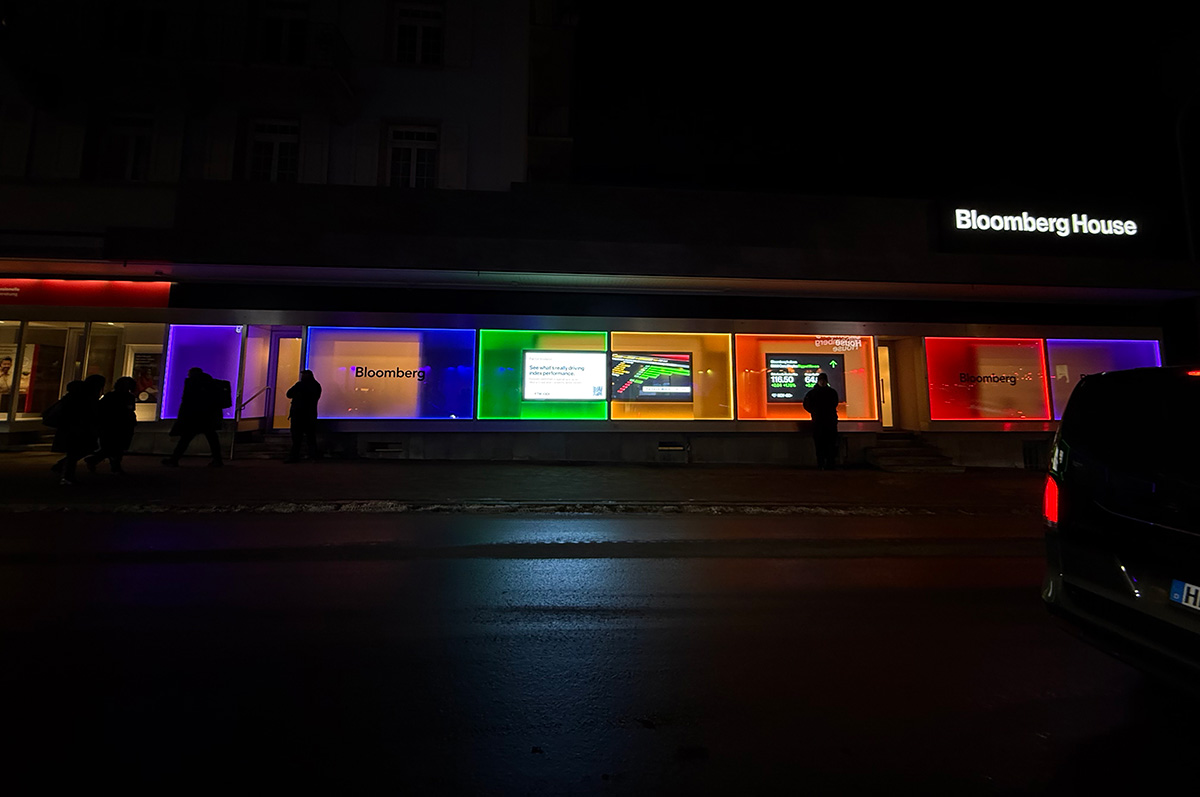
Virginia
LGBTQ rights at forefront of 2026 legislative session in Va.
Repeal of state’s marriage amendment a top priority

With 2026 ramping up, LGBTQ rights are at the forefront of Virginia politics.
The repeal of Virginia’s constitutional amendment that defines marriage as between a man and a woman is a top legislative priority for activists and advocacy groups.
The Virginia Senate on Jan. 17 by a 26-13 vote margin approved outgoing state Sen. Adam Ebbin (D-Alexandria)’s resolution that would repeal the Marshall-Newman Amendment. The Virginia House of Delegates earlier this month passed it.
Two successive legislatures must approve the resolution before it can go to the ballot.
The resolution passed in 2025. Voters are expected to consider repealing the amendment on Nov. 3.
The Virginia General Assembly opened with an introduction of a two-year budget — Virginia’s budget runs biannually.
In 2024 some funding was allocated to LGBTQ causes, and others were passed over. This year’s proposed budget leaves room for funding for a host of LGBTQ opportunities. One specific priority that Equality Virginia is promoting would ensure the state budget expands healthcare for LGBTQ individuals and extending gender affirming care.
Equality Virginia Communications Director Reed Williams told the Washington Blade the organization is also focused on passing three main budget amendments, and ensuring “LGBTQ+ students and their teachers have resources to navigate and address mental health challenges in K-12 schools.”
Along with ensuring school training, the organization wants funding in hopes of “establishing enhanced competency training for Virginia’s 988 Lifeline counselors and support staff to provide affirming care for LGBTQ+ youth.” This comes after the Trump-Vance administration shut down the specific hotline for LGBTQ young people that callers could previously reach if they called 988.
On a federal level, protections and health care access for LGBTQ people has taken a hit, as the Trump-Vance administration has continued to issue executive orders affecting the health care system. LGBTQ people no longer have federal legal health care protections, so local and state politics has become even more important for LGBTQ rights groups.
Equality Virginia has urged its supporters to call their local senators and stress the importance of voting to expand health care protections for LGBTQ people. The organization also plans to hold information sessions and a lobby day on Feb. 2.
Equality Virginia is tracking bills on its website.
District of Columbia
Faith programming remains key part of Creating Change Conference
‘Faith work is not an easy pill to swallow in LGBTQ spaces’
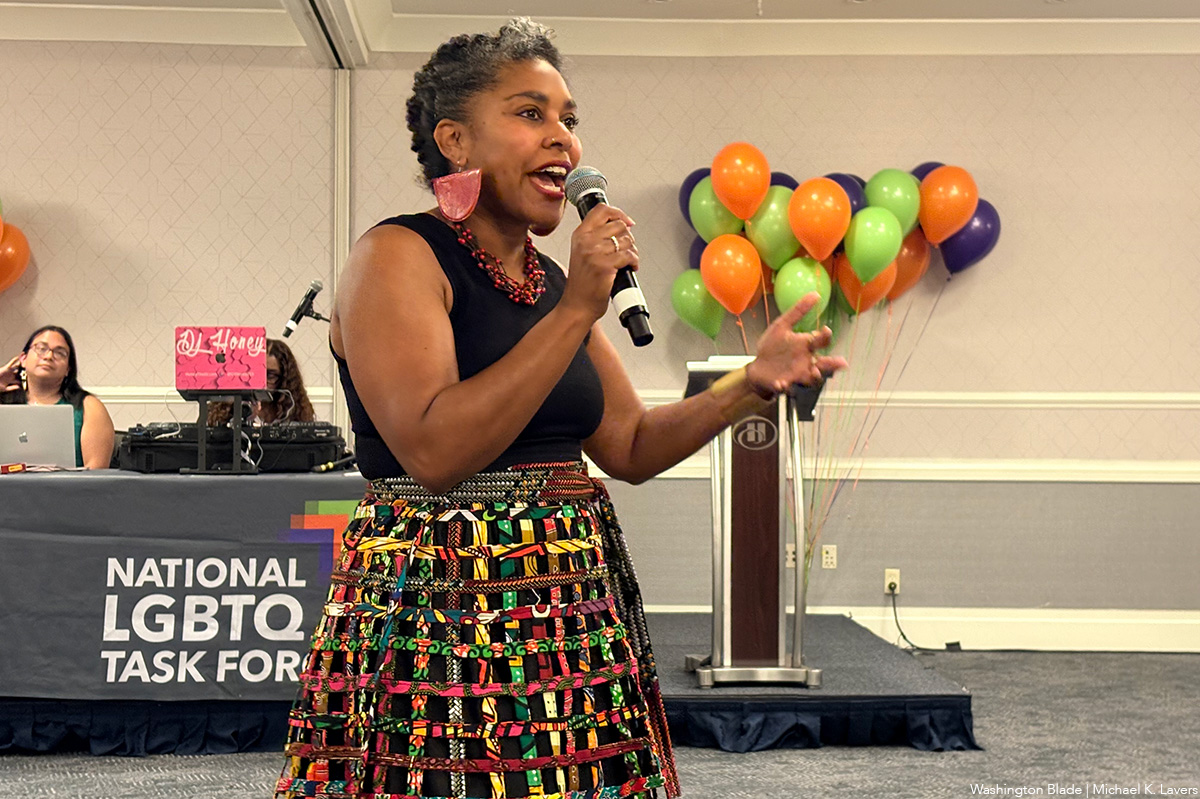
The National LGBTQ Task Force kicked off the 38th annual Creating Change conference in D.C. this week. This year, as with years past, faith and interfaith programming remains a key part of the conference’s mission and practice.
For some, the presence of faith work at an LGBTQ+ conference may seem antithetical, and Creating Change does not deny the history of harm caused by religious institutions. “We have to be clear that faith work is not an easy pill to swallow in LGBTQ spaces, and they’re no qualms about saying that we acknowledge the pain, trauma, and violence that’s been purported in the name of religion,” Tahil Sharma, Faith Work Director for the National LGBTQ Task Force, said.
In fact, several panels at the conference openly discuss acknowledging, healing from, and resisting religious harm as well as religious nationalism, including one scheduled today titled “Defending Democracy Through Religious Activism: A panel of experts on effective strategies for faith and multi-faith organizing” that features local queer faith activists like Ebony C. Peace, Rob Keithan, and Eric Eldritch who are also involved in the annual DC Pride Interfaith Service.
Another session will hold space for survivors of religious violence, creating “a drop-in space for loving on each other in healing ways, held by Rev. Alba Onofrio and Teo Drake.”
But Sharma and others who organized the Creating Change Conference explained that “a state of antipathy” towards religious communities, especially those that align with queer liberation and solidarity, is counterproductive and denies the rich history of queer religious activism. “It’s time for us to make a call for an approach to LGBTQ+ liberation that uses interfaith literacy as a tool rather than as a weapon against us,” Sharma explained.
Recognizing a local queer faith icon
Along with the panels, fighting religious nationalism and fostering communion with aligned faith activists and communities is at heart of this year’s faith work. As Sharma shared, “the person that we’re honoring this year for the faith award is Rev. Dr. Sofía Betancourt, and Dr. Betancourt is an amazing leader and someone who really stands out in representing UUs but also representing herself unapologetically.”
Based in the Washington, D.C. area, Dr. Betancourt has more than 20 years of experience working as a public minister, seminary professor, scholar, and environment ethicist, and public theologian. Her activism is rooted in her lived identities as a queer, multiracial, AfroLatine first-generation daughter of immigrants from Chile and Panama, and has been a critical voice in advancing the United Universalism towards anti-racist and pluralistic faith work.
Creating a faith-based gathering space
Sharma also said that faith fosters a unique space and practice to encounter grief and joy. For this reason, Sharma wants to “create a space for folks to engage in curiosity, to engage in spiritual fulfillment and grounding but also I think with the times that we’re in to lean into some space to mourn, some space to find hope.” The Many Paths Gathering Space serves this purpose, where visitors can stop for spiritual practice, speak with a Spiritual Care Team member, or just take a sensory break from the bustle of the conference.
This also means uplifting and foregrounding queer religious ephemera with an ofrenda to honor those who have passed, a display of nonbinary Korean American photographer Salgu Wissmath’s exhibition Divine Identity, and the Shower of Stoles, a collection of about 1,500 liturgical stoles and other sacred regalia representing the lives of lesbian, gay, bisexual, and transgender people of faith.
The Shower of Stoles
The collection was first started in 1995 by Martha Juillerat and Tammy Lindahl who received eighty stoles that accompanied them and lent them solace as they set aside their ordinations from the Presbyterian Church. The whole collection was first displayed at the 1996 General Assembly of the Presbyterian Church in New Mexico. The stoles, according to the Task Force, “quickly became a powerful symbol of the huge loss to the church of gifted leadership.”
Each stole represents the story of a queer person who is active in the life and leadership of their faith community, often sent in by the people themselves but sometimes by a loved one in their honor. About one third of all the stoles are donated anonymously, and over three-quarters of the stoles donated by clergy and full-time church professionals are contributed anonymously.
The collection shows “not just the deep harm that has been caused that does not allow people to meet their vocation when they’re faith leaders, but it also speaks to how there have been queer and trans people in our [faith] communities since the beginning of our traditions, and they continue to serve in forms of leadership,” Sharma explained.
Explicit interfaith work
Along with creating a sacred space for attendees, hosting workshops focused on faith-based action, and recognizing DC’s rich queer religious history, Creating Change is also hosting explicitly faith services, like a Buddhist Meditation, Catholic Mass, Shabbat service, Jummah Prayer Service, and an ecumenical Christian service on Sunday. Creating Change is also welcoming events at the heart of queer religious affirmation, including a Name/Gender/Pronoun/Identity Blessing Ritual and a reading and discussion around queer bibles stories with Rev. Sex (aka Rev. Alba Onofrio).
But along with specific faith-based programs, Sharma explained, “we’re looking to build on something that I helped to introduce, which was the separation of the interfaith ceremony that’s happening this year which is a vigil versus the ecumenical Christian service which is now the only thing that takes place on Sunday morning.”
This includes an Interfaith Empowerment Service this evening and an Interfaith Institute tomorrow, along with “Sing In the Revolution,” an event where folks are invited “to actually engage in the joy and rhythm of resolution and what that looks like,” Sharma said. One of the key activators behind this work is Rev. Eric Eldritch, an ordained Pagan clergy person with Circle Sanctuary and a member of the Pride Interfaith Service planning committee.
Affirming that queer faith work is part of liberation
The goal for this year, Sharma noted, alongside holding space and discussions about faith-based practice and liberation and intentional interfaith work–is to move from thinking about why faith matters in queer liberation spaces to “how is interfaith work the tool for how we’re engaging in our understanding of de-escalation work, digital strategies, navigating a deeper visioning that we need for a better world that requires us to think that we’re not alone in the struggle for mutual abundance and liberation,” Sharma explained.
It may surprise people to learn that faith work has intentionally been part of the National LGBTQ+ Task Force since its beginning in the 1980s. “We can really credit that to some of the former leadership like Urvashi Vaid who actually had a sense of understanding of what role faith plays in the work of liberation and justice,” Sharma said.
“For being someone who wasn’t necessarily religious, she certainly did have a clear understanding of the relationship between those folks who are allies, those folks who stand against us, and then those folks who sit in between–those folks who profess to be of religious and spiritual background and also are unapologetically LGBTQ+,” he continued.
This year’s faith programming builds on this rich history, thinking about “a way to kind of open doors, to not just invite people in but our people to go out into the general scene of the conference” to share how faith-based work is a tool, rather than a hindrance, to queer liberation work.
-

 Real Estate5 days ago
Real Estate5 days agoTop buyer-friendly markets for the LGBTQ community
-

 Virginia5 days ago
Virginia5 days agoAbigail Spanberger sworn in as Va. governor
-

 Autos5 days ago
Autos5 days agoHot rod heaven: Chevy Corvette, Dodge Charger
-

 Virginia4 days ago
Virginia4 days agoTwo gay candidates running in ‘firehouse’ Va. House of Delegates primary in Alexandria



















